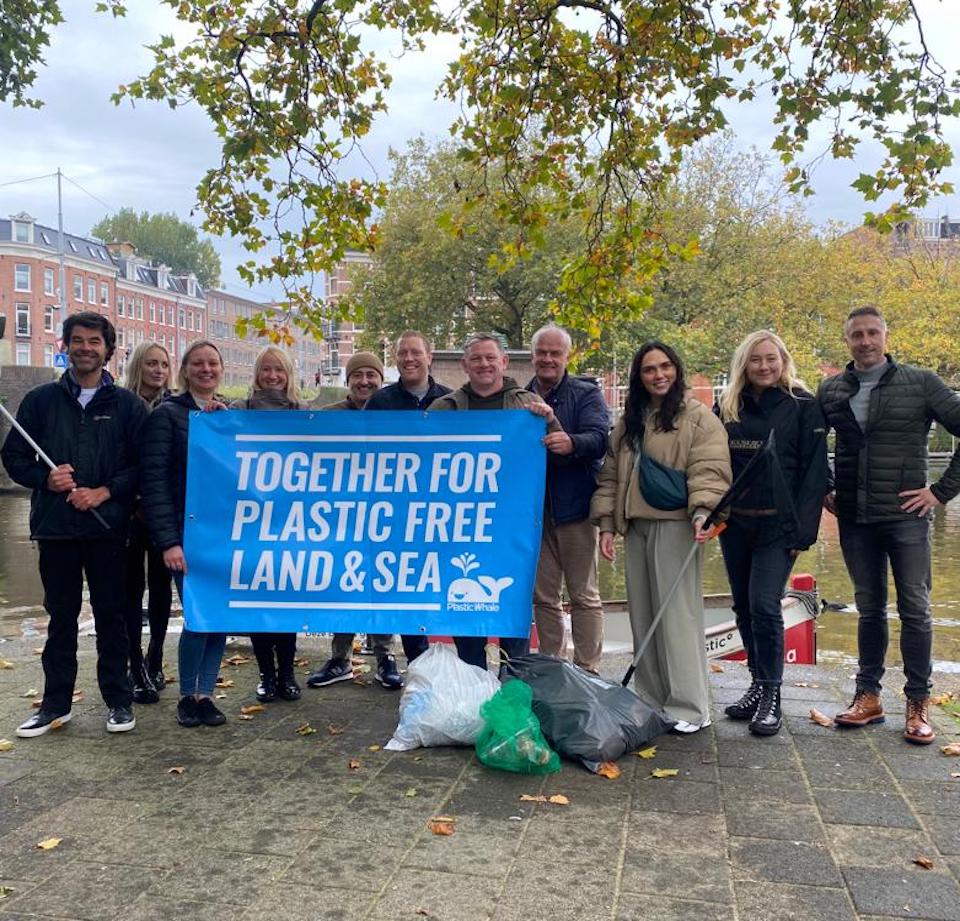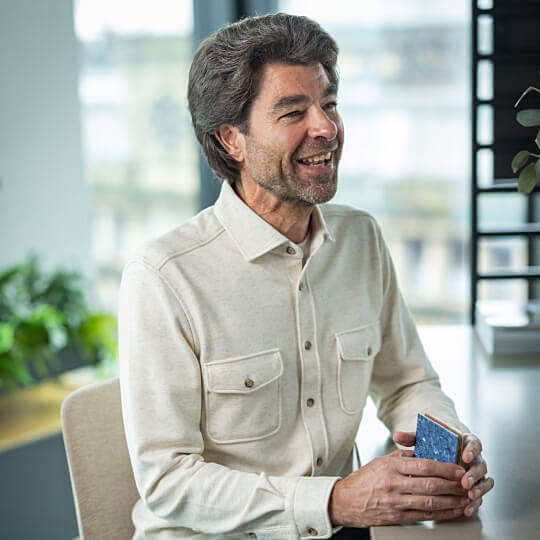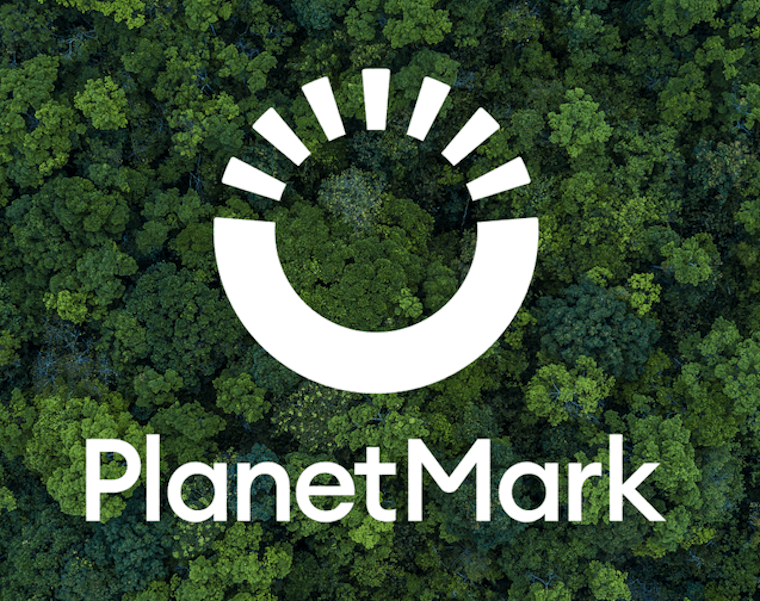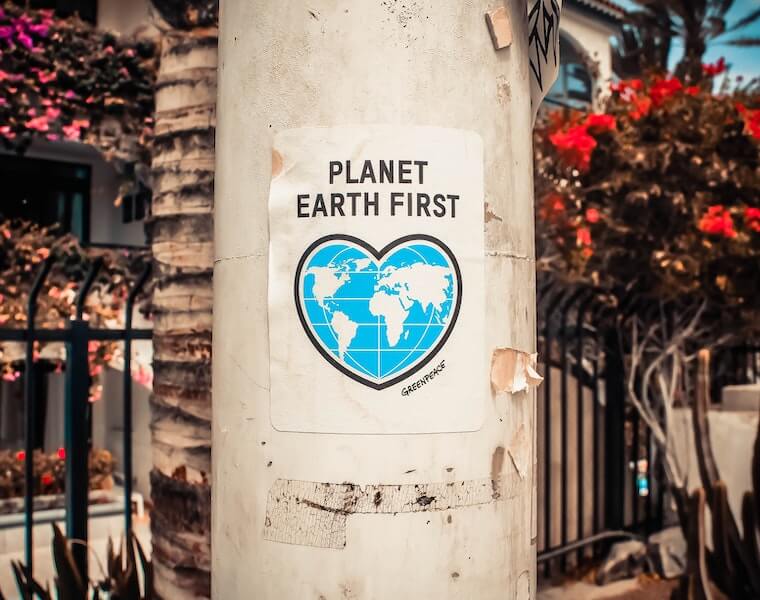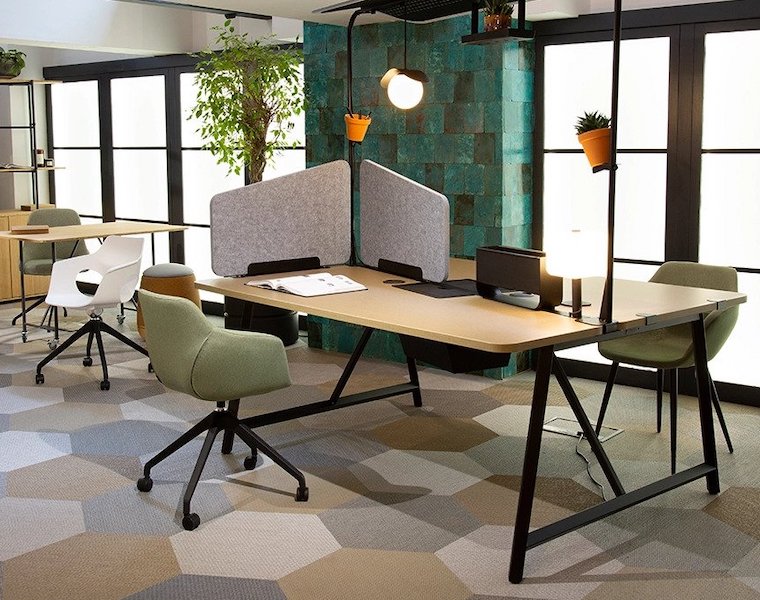Last month, we took Bruntwood on a trip to Holland to visit Nomique at the Vepa furniture factory. On the agenda? A spot of ‘plastic fishing’ in the Amsterdam canals to learn more about how eco-active groups take the masses of waste found in the city’s waters to transform it into sustainable items such as office furniture.
Our Furniture Director, Paul and Furniture Executive, Amy headed for Holland with Bruntwood’s Jordan Harrison (Graduate Energy and Sustainability Manager), Lauren Gavaghan (Senior Development Manager) and Michelle Cowin (Design Team Operations Lead). They spent the day on the canals with Nomique and Plastic Whale, extracting plastic bottles from the water. This is something Plastic Whale does each and every year, taking thousands of people out onto the Amsterdam canals, recovering tonnes of waste plastic and recycling it for eco-friendly use.
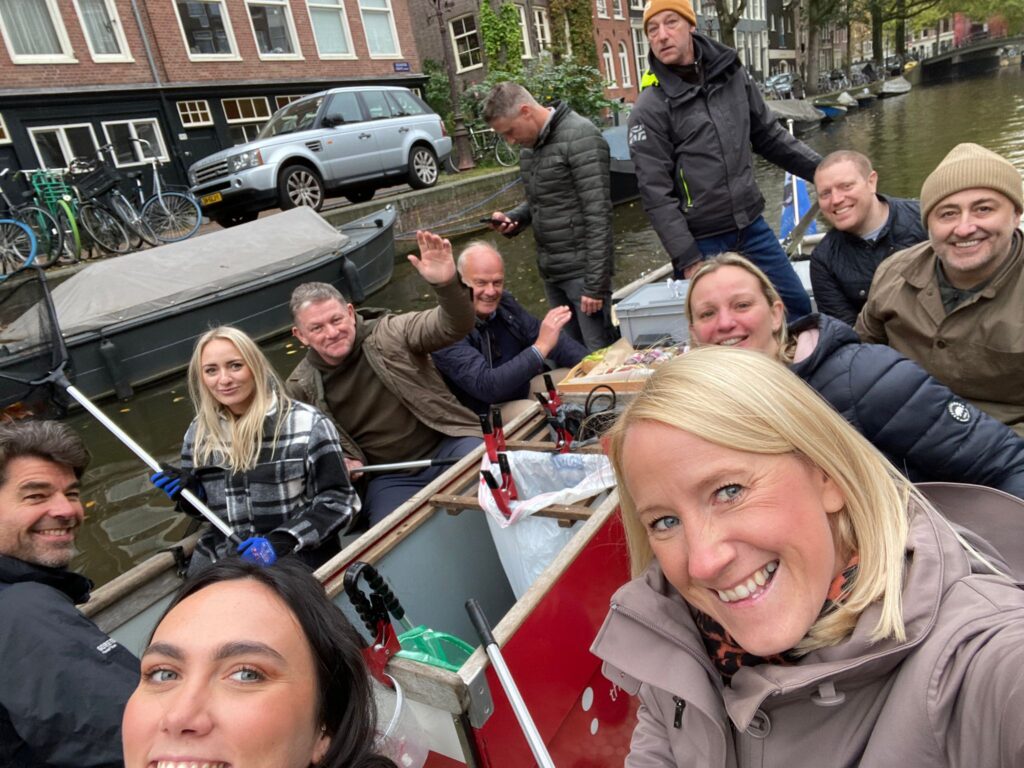
Being part of the incredible product scheme was a fantastic and insightful opportunity and here, we share some of the backstory with you.
The global problem of ‘plastic soup’
The plastic fishing concept began as a proactive response to Holland’s waste-polluted waters (AKA ‘plastic soup’) and a bid to fight for plastic-free land and sea. That’s how the Plastic Whale group came to be.
Plastic Whale saw an opportunity to create economic value from the plastic waste recovered from the canals, building boats from the PET bottles retrieved. This opened the door to a whole new opportunity: office furniture made from recycled waste plastic—and that’s exactly how Nomique’s iconic ‘Plastic Whale Boardroom Table’ came to be.
The ‘Plastic Whale’ table
We first saw the Plastic Whale table first-hand back during Clerkenwell Design Week 2019 and we’ve been fascinated with the product’s sustainable story ever since. When Plastic Whale came up with the idea of creating commercial furniture from waste plastic, they collaborated with designers from Dutch design agency, LAMA Concept to develop the idea.
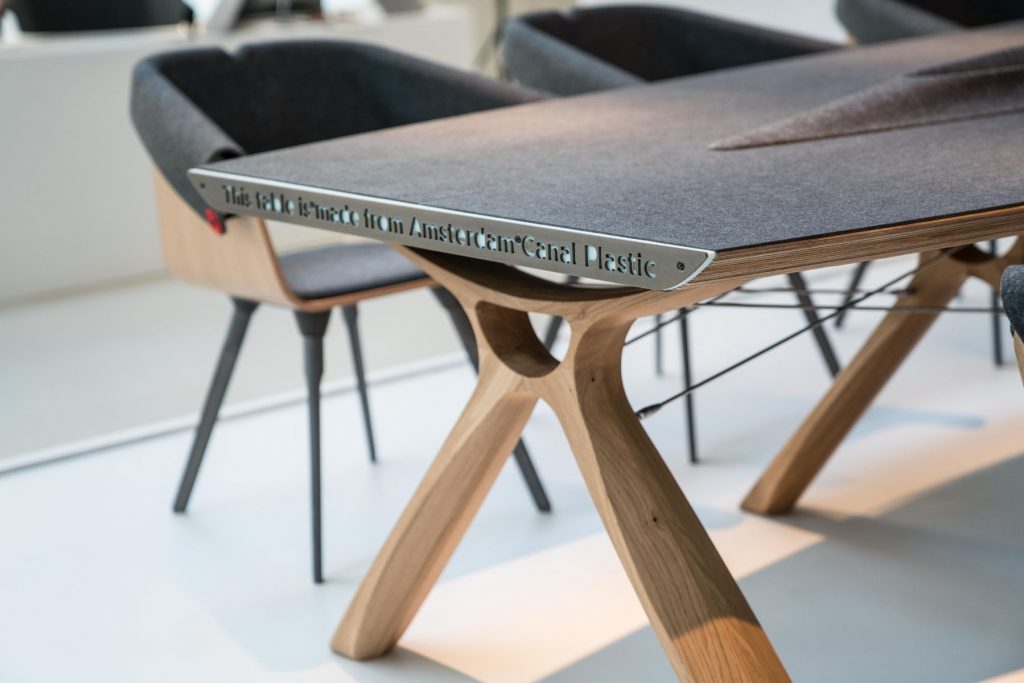
They then reached out to Vepa—one of Holland’s leading office furniture companies to discuss the potential for product development. After many months of collaboration, design, redesign and testing, Nomique’s Plastic Whale Table was produced, manufactured using almost 1,000 recovered plastic bottles per table.
The design concept focuses around the various features of a whale. The table top mimics a whale breaking the water’s surface, with integrated tech based on a whale’s blow hole. The robust legs mimic a whale’s strong skeletal structure and the coordinating chairs are inspired by the shapes and lines of a whale’s tail. The accompanying lights are based on the barnacles found attached to a whale’s skin.
In terms of recycled content, the foam plates used to create the table repurposes around 627 PET bottles, while the smooth felt used on the tabletop recycles around 332 bottles. The design also features sustainably-sourced oak and FSC birch wood. It’s a true innovation in sustainable design and it was incredible to learn more about it’s story and partake in the process that brought it into conception.
